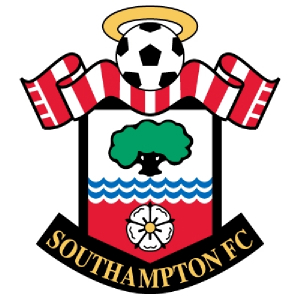 Those who know me will be aware that I am an avid supporter of Arsenal FC. However I cannot help but feel a little disturbed by the goings on at Southampton FC. Being a graduate of the University of Southampton, there is a little place in my heart for the 2003 FA Cup Finalists. It is ironic that the club’s nickname is ‘Saints’ – it may take some form of divine intervention to drag them out of the mess in which they currently lie.
Those who know me will be aware that I am an avid supporter of Arsenal FC. However I cannot help but feel a little disturbed by the goings on at Southampton FC. Being a graduate of the University of Southampton, there is a little place in my heart for the 2003 FA Cup Finalists. It is ironic that the club’s nickname is ‘Saints’ – it may take some form of divine intervention to drag them out of the mess in which they currently lie.
Southampton FC was recently penalized 10 points because they had become insolvent. This is a standard penalty that the Football League imposes on clubs who cannot sustain liquidity. The impact is usually crippling – it is incredibly difficult to avoid relegation to the division below as a result of this penalty.
Normally, I would have little or no objection to this, as it is a duty of any team to ensure financial stability and the protection of long-term well being. The amount of money that is spent in football is ludicrous. This is worsened by the fact that clubs are spending money that they do not actually have. If you spend recklessly (through either transfer fees of players or salaries) and become bankrupt for it, then you get what you deserve in my opinion.
However, something about the Southampton scenario does not smell right. The club is operated by a management company. This is the subsidiary of a parent company. From what I gather, it is the parent company that has gone insolvent, NOT the subsidiary. In English law, every company is considered a separate legal entity. The general rule is that subsidiary companies are not agents of their parent companies. These rules all stem from a case that emerged some two centuries ago – Salomon v Salomon.
With this in mind, I cannot see how the Football League has come to the conclusion it has. In order to impose this penalty, it has basically circumvented the law by claiming that the management company (subsidiary company) and the parent company “are inextricably linked as one economic entity”. However there are very limited circumstances in which the ‘corporate veil’ of incorporation can be pierced and traditionally the courts view these circumstances restrictively and with much caution.
The comments from Southampton FC seem to suggest that an official appeal will be launched and I suspect it will be on the basis that the penalty is illegal for the reasons discussed above:
“We are of the opinion that an incorrect conclusion has been reached. The football regulations do not apply to the circumstances surrounding Southampton Football Club. This is a view shared by the lawyers and advisers to both the club and the administrators.”
However, it is too little too late as relegation to ‘League One’ was confirmed last weekend, meaning the club will be commencing the 2009-2010 season with a 10 point deduction.
More and more clubs are being caught by the overspending that occurs in football. Southampton join Leeds United (Champions League Semi-Finalists in 2001), Luton Town and AFC Bournemouth in the growing list of teams to go bankrupt. The only solution to this ongoing problem is that teams must stop spending beyond their means. The evidence shows that if they continue to spend money they do not have then it will come back to bite them, hard.
One reply on “Can the Saints be Saved?”
So turn your point of view around. Even if the Saints are legally protected they have essentially done the same thing as Luton and Leeds, is it fair in sporting terms to only punish those who were not devious enough to protect themselves?
The whole concept is flawed, Luton are the perfect example. They had a board that simply didn’t care about the future of the club, they dived right in and spent like madmen knowing that there would be no personal repercussions. When the punishment for insolvency came they were long gone and the punishment was dealt out to the fans and the new owners, who appear to be determined to operate the club properly.
The authorities need regulations that help prevent the situation occurring, a proper business plan and financial oversight for all clubs, including the Man Us and Liverpools whose ‘owners’ borrow huge sums to finance the purchase.